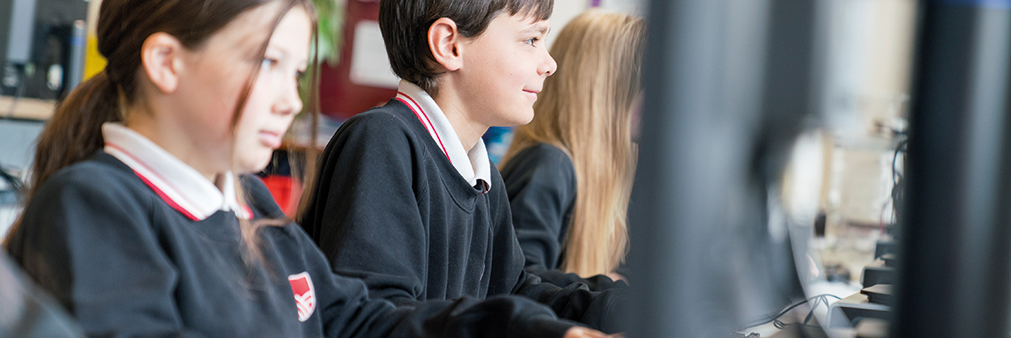
Computer Science
Curriculum Vision
‘Computer Science is no more about computers than astronomy is about telescopes.’
- Edsger W. Dijkstra –
Technology is the mainstay of our communication, entertainment, work, and social lives: can we even imagine a day without technology anymore? What would a future look like with no further technological developments? A world without digitally literate young people would plunge us back into the dark ages. The current ubiquity of technology puts this subject at the forefront of teaching essential skills for modern life.
Knowledge and skills
The core purpose of our Computer Science and IT curriculum is for all pupils to develop knowledge, skills and understanding of technology that enables them to become confident digital citizens. We interleave the three strands within computing - computer science, information technology and digital literacy – throughout years 7, 8 and 9, in an age appropriate and inclusive way, though projects, topics and activities that engage and encourage creativity.
Pupils learn to think creatively, reason systematically and work collaboratively in different coding environments, using both visual and text-based programming. They learn the fundamental workings of the technology they use every day, from networks to computer architecture, operating systems to hardware.
More than anything, our students love projects where they can be creative, and we utilise this to increase their understanding of digital media. Just as in the world of work, they are given specific parameters by fictional clients for whom they must develop sophisticated digital media products that meet exacting standards. In this way, we push our students to think of the application of technology beyond the hills of the High Peak and into a wide variety of settings.
We motivate pupils by learning about our place in history, whilst inspiring them to see our crucial role in the future. We visit the National Video Game Museum in Sheffield and take part in programmes with GCHQ Manchester. Pupils across all year groups enter a variety of local and national competitions to further enrich their experience in the subject: some of these include Bebras UK Challenge, BAFTA Young Games Designer, and Coding for Girls.
Threading its way through this technology-led learning is online safety, from privacy and reputation, to time management.
Context
In this fast-paced subject, we keep a close eye on national and international trends and news, so that our rural students are not disadvantaged living where they do. A global shortage of expertise in this field means that it is more important than ever that we produce high school graduates who are not only digitally literate, but are inspired to become part of the future of technology – we aim to prepare our students to become programmers, project managers, data analysts and graphic designers that work locally and in places as far flung as Silicon valley.
We encourage young women to become part of future developments and lessen the highly publicised gender imbalance in computer science-based roles. In short, we aim to inspire all our pupils to become the next generation of innovative thinkers and technology developers.
You can find our year 7 to 9 curriculum here.
You can find our year 10 and 11 curriculum for Creative iMedia here and our year 10 and 11 curriculum for Computer Science here.
Examination Information
| Qualification | OCR Cambridge Nationals Creative iMedia –J834 |
OCR Computer Science - J277, 9-1 (years 10 and 11) |
|---|---|---|
| Board | OCR |
OCR |
| Syllabus number | J834 |
J277 |
| Website link | ||
| Assessment details: ie 50% terminal exam | 3 units: |
2 written exams - 100% |
| Coursework details | This course is for students who have a creative flair, wishing to develop their practical skills in planning and creating digital media products. |
This course is for students who show a keen interest in furthering their knowledge on the science of how computers work, along with programming fundamentals. |
| Recommended coursebook if appropriate | Clear Revise OCR Creative iMedia J834(R093, R094) |
Clear Revise OCR GCSE Computer Science J277 |
| Recommended revision guides | Provided in class |
GCSE OCR Computer Science The Revision Guide |

